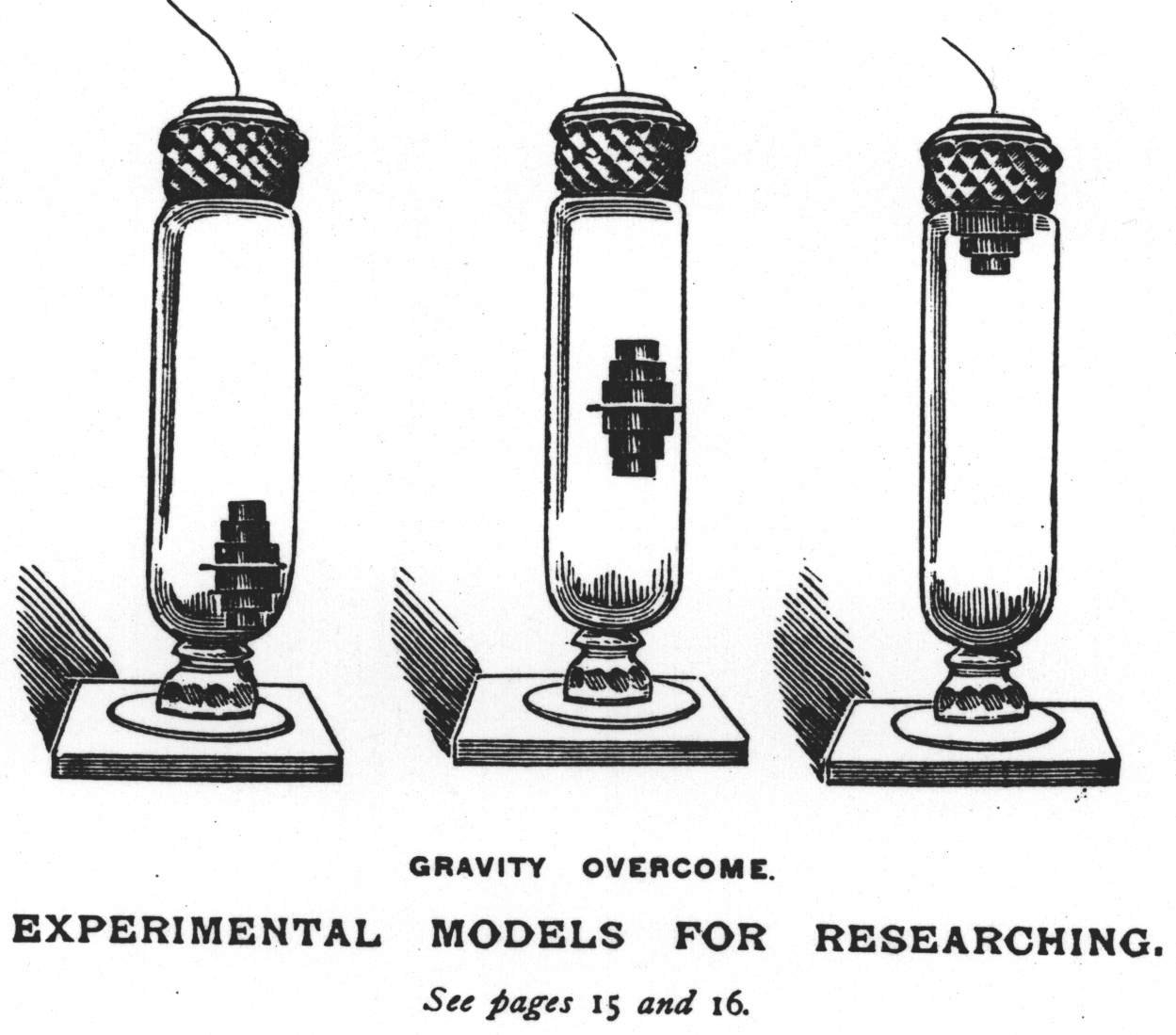All freely floating bodies which are in balance with their environment have no weight whatsoever.
The moment any potential is taken out of an environment of equal potential, electric strains and tensions are set up in the unbalanced mass thus removed which measure the resistance to that removal.

A stone, for example, is very much out of balance with an equal volume of air. The stone will fall to seek a like potential, not because it has weight as a property of itself but because of the strains of electric polarity which divide the universal balance into equal-and-opposite unbalanced pairs, and insist upon keeping the universe in balance.
Science believes that a man who weighs 150 pounds while surrounded by air still weights 150 pounds when surrounded by the entirely different pressures of water in which he floats. That is not a true concept.
When a man is surrounded by air, he is out of balance with polarity which divides pressures equally. Electric tensions then act as elastic bands which are sufficiently stretched to register a strain of 150 pounds "pull" against the zero of his balance. When he is surrounded by water, however, the pressures of displacement and replacement are equalized. Each is in balance with the other and weight disappears.
If weight were a fixed attribute of matter, it would be unchangeable. It varies, however, as the potentials of masses out of balance vary. A man weighs less as he ascends a mountain, and more in a deep pit. As water falls, it compresses and gains in potential. As it rises, it divides into vapors and loses potential. It, therefore, weighs less. When its potential is equal in volume to the volume of potential displaced, it floats as a cloud. It then has no weight.
And so it is with stars, suns, planets and moons. They are all freely floating bodies and have no weight in respect to any other body in the universe.
Each solid centers an oppositely polarized volume of space in a wave field in which each polarized condition is of equal potential but of unequal volume. Every balanced wave field is insulated from every other wave field by reversals of curvature, which are separately considered in later pages.
The following definitions of weight will help to clarify the present misconception regarding it.
1. Weight is the measure of unbalance between the two electric forces which polarize the universal equilibrium.
2. Weight is the sum of the difference between the two pressures which act on every mass.?
3. Weight is the sum of the difference in electric potential between any mass and the volume it occupies.
4. Weight is the measure of the force which a body exerts in seeking its true potential.
5. Weight is the sum of the difference between the inward thrust of gravitation and the outward thrust of radiation. [Walter Russell, A New Concept of the Universe, pages 43-45]
Return to New Concept - Table of Contents
